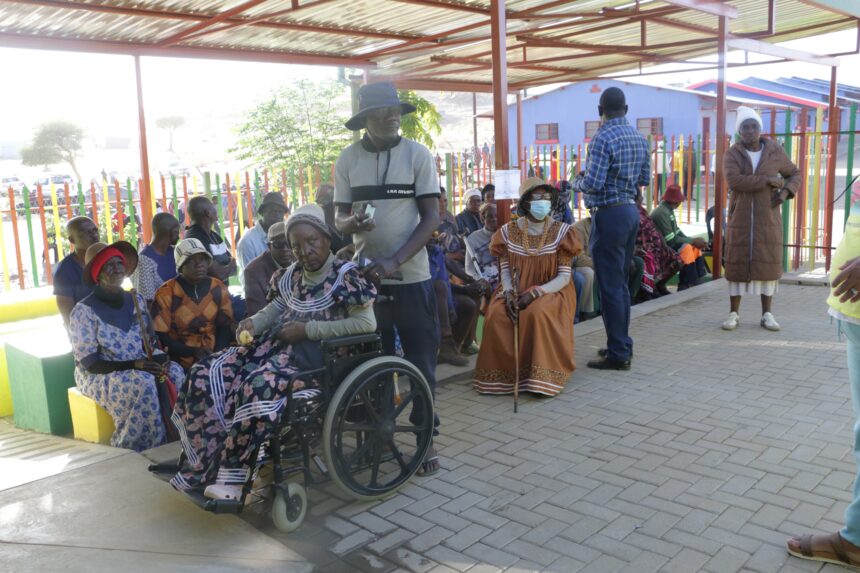Lahja Nashuuta
AMINIUS – Various voters with disabilities have taken a swipe at the Electoral Commission of Namibia (ECN) over alleged unfriendly polling stations for their special needs.
Several people with disabilities who spoke to this publication said it was a nightmare for them to access voting centres and cast their votes.
This is because most of the buildings had no ramps for people in wheelchairs, or those who had trouble with stairs.
At some polling stations, no Braille provision was made for the visually, impaired. In some areas, people with disabilities said tents were set up in sandy and stony areas, where it was difficult to roll a wheelchair.
At most of the centres, presiding officers had to help push the wheelchairs, or assist the visually impaired to cast their votes.
There were also no translators for the hearing-impaired.
In an interview with New Era, Sieben Katjiuanjo, a wheelchair-user who cast his vote at the Kambanderu Kauta Community Hall, narrated his experience.
“I was very happy to exercise my right as a Namibian, but it was a challenge to access the polling station. Someone had to push me from one point to another. I felt uncomfortable being pushed around,” he said.
He stated that it was difficult to enter the polling stations, as there were no ramps for wheelchair users. “My disappointment is in the ECN’s preparations. I was complaining to them that the accessibility for people with disabilities must be taken seriously. I told them that people with disabilities should be part of the planning because decisions about us cannot be made by someone who does not live with disabilities and speak on our behalf. We are human beings. We must be treated equally,” Katjiuanjo stressed. He added: “If they don’t know the language of people with disabilities, they must employ people with disabilities to assist them”.
Another voter, who preferred anonymity, said “the ECN has ignored our plight. Most of the centres where elections took place are not accessible to people with disabilities. In all voting centres, there are no translators for the hearing-impaired, and no Braille to cater to those who are blind”.
Uahova Katjiremba, the National Disability Council of Namibia’s researcher and development officer, said whilst the government is making efforts to ensure that persons with different impairments also participate in civic processes, numerous gaps need to be filled. “Some of the challenges we face as people with disabilities are access to information when it comes to these things. Information may be out there, but it is not in an accessible format like Braille and audio or pictures for sign language users,” she said.
She remarked that the government has failed to fulfil its commitment under the United Nations Convention on the Rights of Persons with Disabilities (UNCRPD), which the country is a signatory to.
Article 29 of the UNCRPD stipulates that state parties should ensure that voting procedures, facilities and materials are appropriate and easy to use for persons with disabilities, and to protect the rights of persons with disabilities to vote by secret ballot.
“If we are to talk about inclusion, responsible electoral authorities and government must produce voter material in Braille because taking a confidant to assist me with voting is a violation of my privacy,” she added.
Response
The ECN denied the claims, stating that provisions were put in place to accommodate people with different disabilities.
Josephine Kudumo, who handles disability-related affairs at the ECN, said 98% of the polling stations were accessible and equipped with Braille materials.
She said the needs of those with hearing- impairments were catered for.
“Prior to the elections, we distributed civic education to the community through the disability institutions, schools and public meetings, where we shared information as to how they were supposed to cast their votes,” she said.
She continued: “So far, I didn’t find any report that there was a case where somebody went to a polling station and was not able to enter on wheelchairs, and so forth”.
She said there was no need for interpreters at the polling stations, as most of the information and civic education was done at different stages to equip the hearing-impaired on how to vote.
“There was not much to be done at the polling stations when it comes to interpretation, because the information that you need to go within the polling station was provided during voters’ education,” she maintained. -lnashuuta@gmail.com


